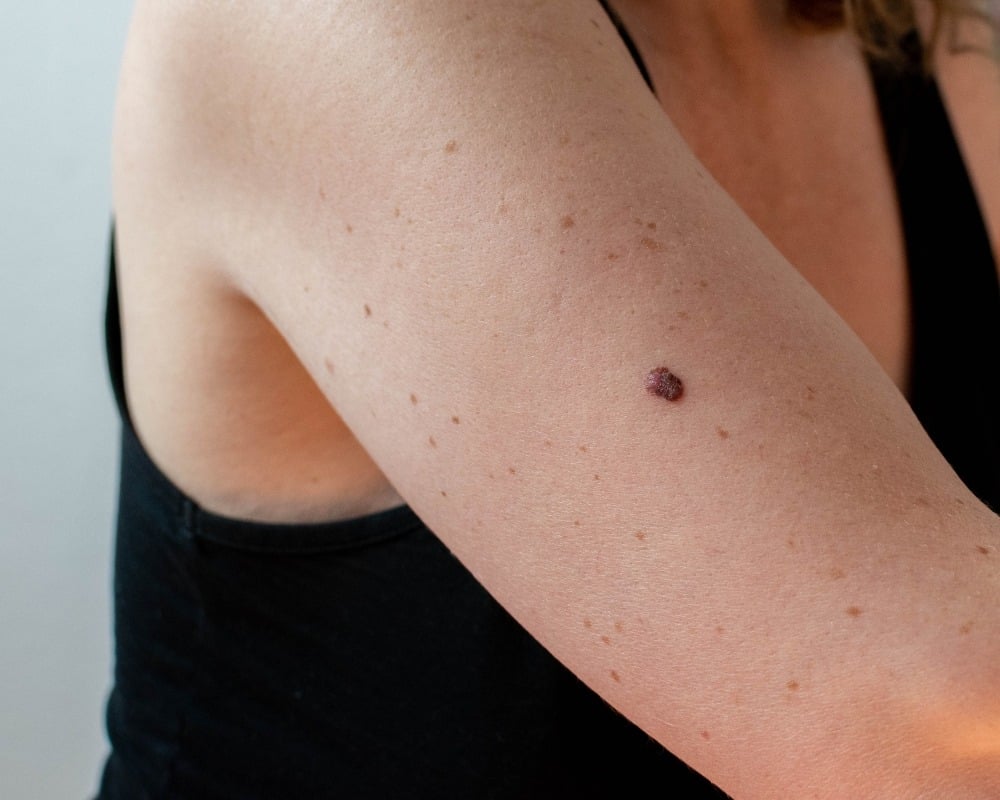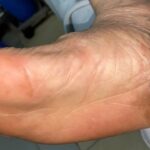Not All Pimples Are Harmless
According to Dr. Daniel Sugai, a Harvard-educated dermatologist, any persistent bumps or abnormalities on the skin that don’t disappear within a month warrant a thorough examination. He particularly draws attention to areas of the skin that repeatedly bleed or scab, even with gentle cleansing.
“Some people see blood just from lightly touching their faces. If an area of the skin doesn’t heal for an extended period or is overly sensitive and prone to injury, it’s a sign to get it checked by a specialist immediately,” warns Dr. Sugai.

Skin Cancer Isn’t Always About Sun Exposure
The Skin Cancer Foundation estimates that around 3.6 million cases of basal cell carcinoma (BCC) are diagnosed in the US annually. BCC originates from the basal cells, which produce new skin cells to replace those that die. It often forms small blood vessels resembling tree branches, making the skin vulnerable to injury and bleeding.
Some telltale signs of BCC include:
- Pimples that don’t heal for weeks
- Small, shiny, flesh-colored bumps
- Waxy, scar-like patches
- Brown, black, or blue lesions
- In people with darker skin tones, BCC often manifests as subtle dark spots that are harder to detect.
The First 20 Years: A Crucial Period for Skin Health
“The first two decades of life are the most critical for safeguarding the skin from UV damage,” emphasizes Dr. Sugai. “Frequent sunburns during this period can lead to lifelong DNA damage in the skin.”
Skin cancer may develop later in life, following years of cumulative sun exposure. While BCC commonly affects areas directly exposed to the sun, such as the face, neck, arms, and scalp, other body regions are not exempt from risk.
Early Diagnosis and Timely Treatment
The most common treatment for BCC is surgical removal of the affected area. Doctors advise regular self-skin examinations, paying close attention to any unusual changes, such as prolonged pimples, bleeding, or strange spots on the body.
If you notice any suspicious signs, consult a dermatologist for timely advice and treatment—early detection is the most effective way to safeguard your skin’s health and, ultimately, your life.





































